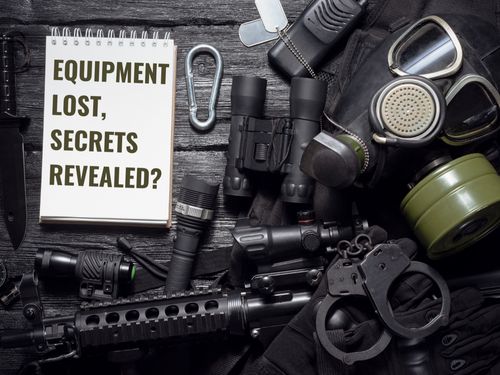The US and Taliban fought, and China won
Sep 15, 2021 · 2 mins read
0
Share

The US hastily withdrew from Afghanistan in August 2021. As the Taliban wrested control from the Afghan government faster than anyone predicted, there were a lot of loose ends. One of them: advanced equipment left behind. Read on👇👇👇
Save
Share
China won the war? Patrick Tucker, the tech editor of Defense One, argues that the Taliban will trade US equipment with China for funds. This will give China “a broad window into how the U.S. military builds and uses some of its most important tools of war.”
Save
Share
Cyber weapons. The Taliban captured an Afghan Air Force C-130 plane. The Pentagon claimed the internal radios & computers were disabled, but an enterprising hacker can dig in and discover flaws. These flaws can be used to mount remote cyber attacks on US planes in the future.
Save
Share
The Humvees left behind were not just armored boxes on wheels. They contain “technologies, crypto systems” and other things that can tell an enemy how the US forces communicate and execute missions in the heat of war.
Save
Share
IEDs. The US military had developed ECM devices that can detect and counter Improvised explosive devices (IEDs). These were left behind, and now geopolitical adversaries can pick them apart and learn to disable them.
Save
Share
“There are always vulnerabilities.” Testers don’t get adequate time to check for all vulnerabilities. On their rushed schedule, they still always find vulnerabilities in new defense gear. The plans to fix these flaws? “Inconsistent.” The budget? “Inadequate.”
Save
Share
No operating procedures. In test drills, the military checks whether a truck, radio, or system can be penetrated and compromised. In these drills, each time a subcomponent gets knocked out, the response comes: “We do not have operating procedures for what you just did.”
Save
Share
The criticism. Some have criticized this argument, saying that only “basic infantry stuff” was left behind - nothing too “secret or novel” that can actually harm US interests.
Save
Share
Balaji’s response. Balaji, an investor and entrepreneur, argues that in the fog of war, you don’t really know. The Afghani government fell quicker than expected, the drone strikes are less precise than expected, and the equipment left behind might be more valuable than expected.
Save
Share
Bottom line. The US exit from Afghanistan will brew a fresh pot of problems. One of them might be that the US advantage of secrecy in future engagements might be diluted. And an enemy that knows your next move...
Save
Share
0